Docmosis Cloud is a template-based document generation service that can be used via a REST API.
This article is a step-by-step guide to:
- creating a form using Formstack Forms
- sending data, collected by the form, to the Docmosis Cloud service using Zapier
- generating a custom PDF document with the data
Completing and submitting the web form will trigger the generation of a PDF certificate, like this one:
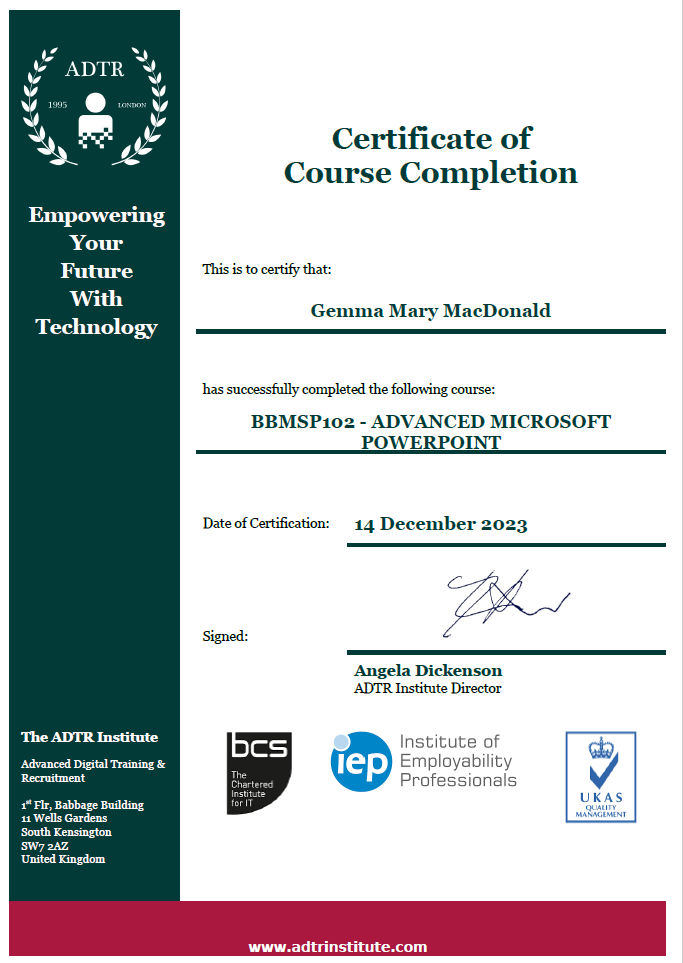 Download the generated document
Download the generated document
Setting up Docmosis Cloud console
Step 1: Login to the Cloud console
If you don't already have a Cloud account, you can sign up for a free trial here.
Once you have an account, log in to the Cloud console.
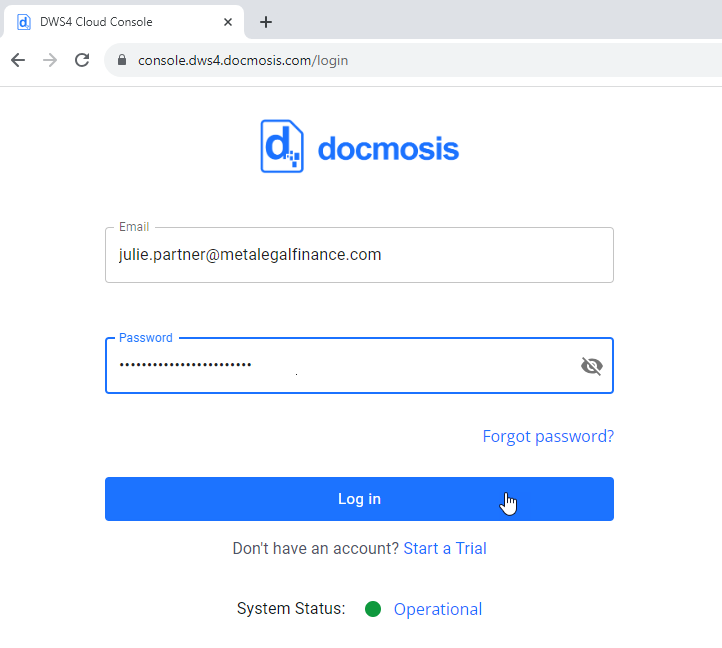
Step 2: Download the template
Docmosis templates are ordinary Microsoft Word documents, with special placeholders that Docmosis replaces with data when it generates the document.
Click on the image or link below, to download the sample template: CourseCompletionCertificate.docx.
The template is ready to use, without any further changes.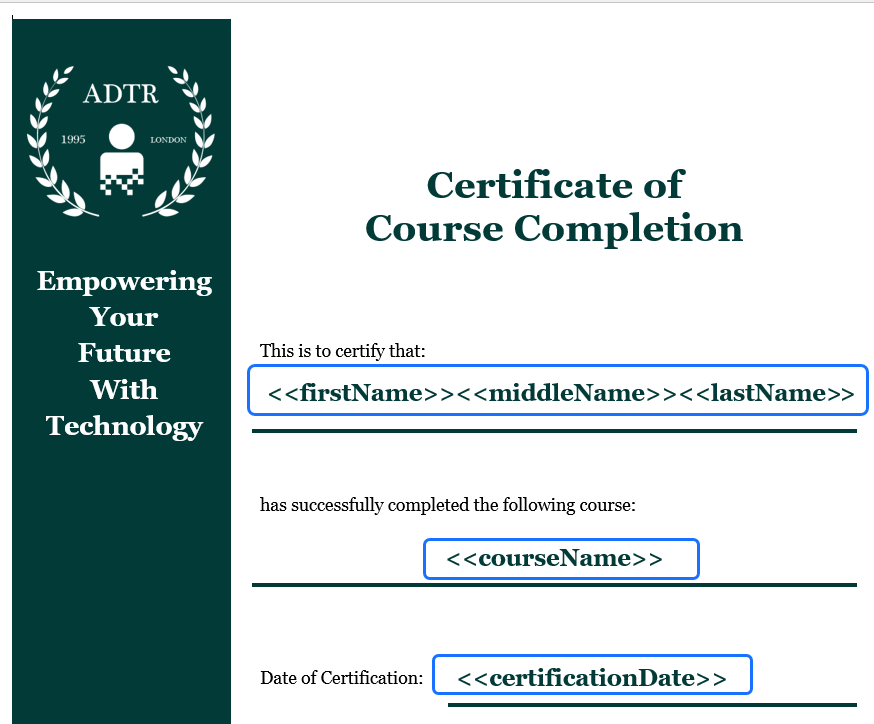
Step 3: Upload the template to the console
Create a new top-level folder, for storing the sample template. In our example, we have named the new folder FormstackForm.
Upload the CourseCompletionCertificate.docx template to the FormstackForm folder in the Cloud console.
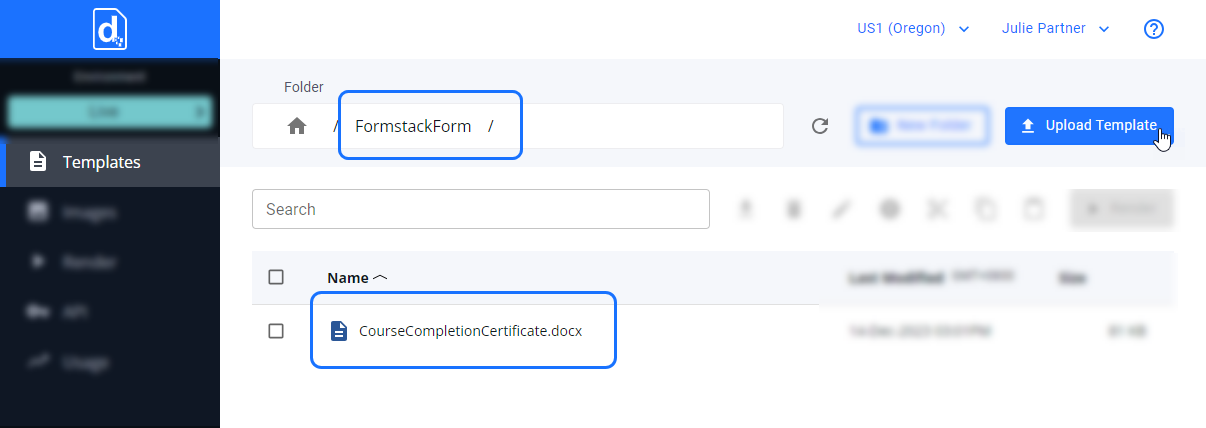
Step 4: Locate the Docmosis Cloud access key and API URL
You will need your access key and URL when setting up the call to Docmosis Cloud in Zapier. Copy these to an editor such as Notepad, to be used later.
Note: In this example, we used the US (Oregon) processing location in the Docmosis Cloud service, for storing the template and generating the document. You can use your default processing location, when following this example.
Build a form in Formstack Forms
Step 5: Login in to Formstack Forms & Build
Log in to Formstack Forms.
In the Build tab, modify a form template or create a new form, follow the create a new form guide.
We have created a form for administrative use within an organization, designed to collect information about students who are about to graduate.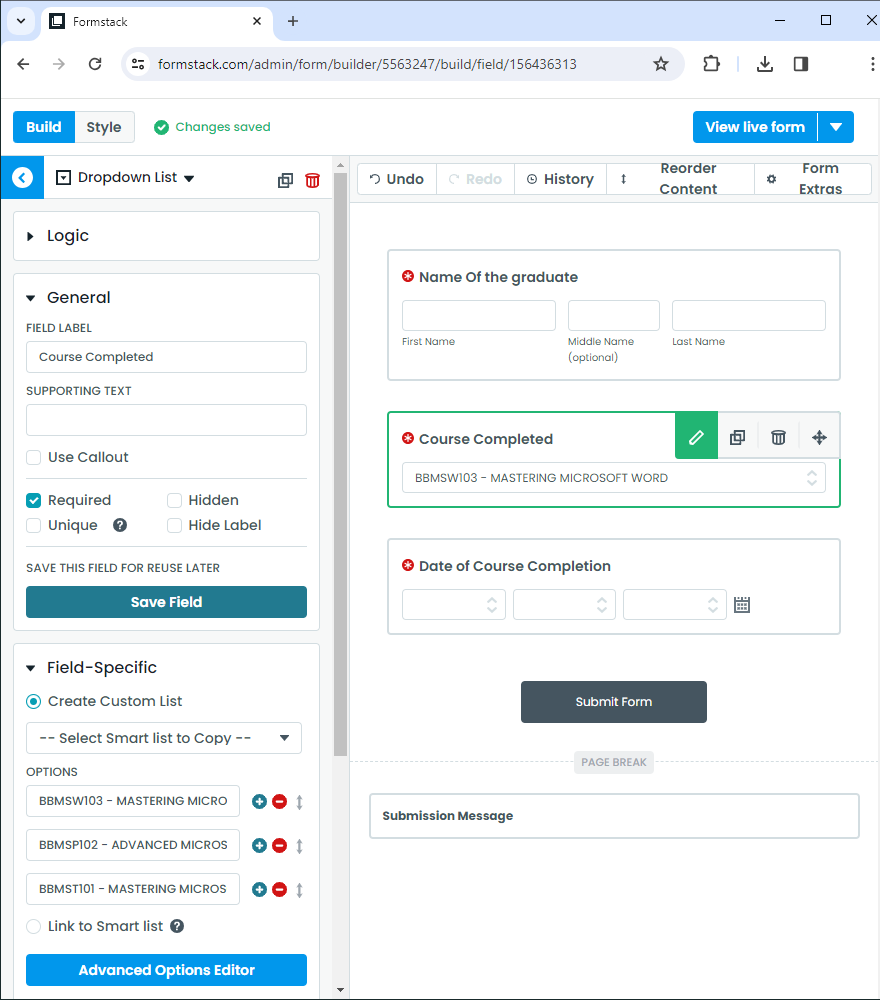
Configure Zapier for automated document generation
Step 6: Create a new Zap with Formstack Forms as the trigger
Log in to Zapier.
Click on any of the "Create Zap" buttons.
Click on trigger step then search and select Formstack from the "Change trigger" pop-up.
To set up the trigger :
-
In the "App & event" section choose "New submission" as Event
-
In the "Account" section authenticate your Formstack Forms account
-
Choose the desired form in the "Trigger" section
-
"Test" to see the form fields populated as data
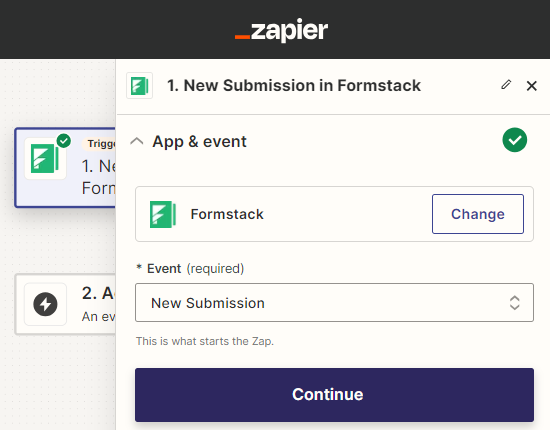 Step 7: Setup Docmosis as an action.
Step 7: Setup Docmosis as an action.
Click on the Action section, then search and select Docmosis in the "Change action" pop-up.
In the "App & event" section, Select "Generate a Document" as Event, then click continue.
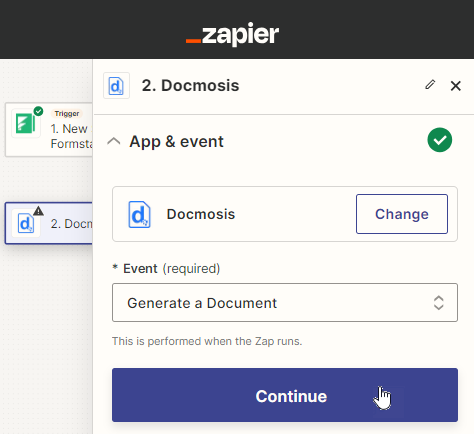 Step 8 : Connect your Docmosis Cloud account to Zapier
Step 8 : Connect your Docmosis Cloud account to Zapier
To connect Docmosis with Zapier, first click on the "Sign in" button located in the "Account" section.
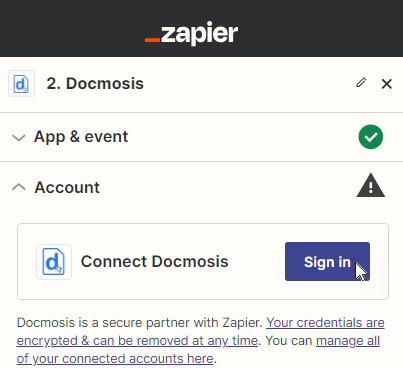
This will open a new authentication window, where you must
- choose the version of Docmosis Cloud service
- enter your access Key (from Step 4 above)
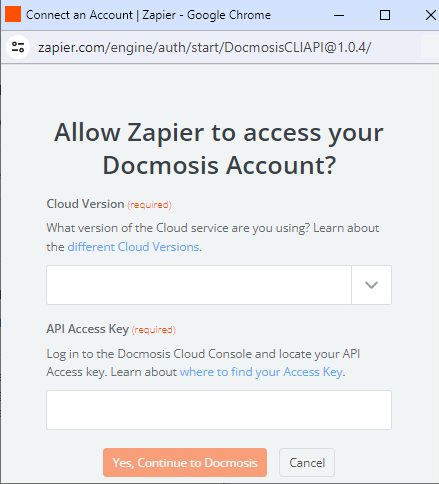
Step 9: Select a template
To select a template you must
- choose the processing location you are using
- select the template from the drop down list
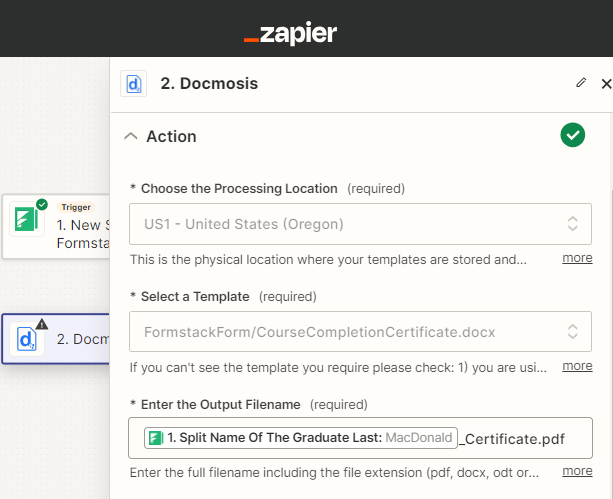 Step 10: Map the form fields to the template fields
Step 10: Map the form fields to the template fields
In the "Action" section,
- Output filename must be specified and should include a file format extension (eg: ".pdf" or ".docx") . The file format extension determines the format of the generated document
- To map form submission data with template placeholders, simply select the desired form field from the dropdown list
Note: The template placeholders are automatically populated once the template is selected. The Formstack Forms fields are shown as a dropdown list when the "Enter text or insert data" box is clicked.
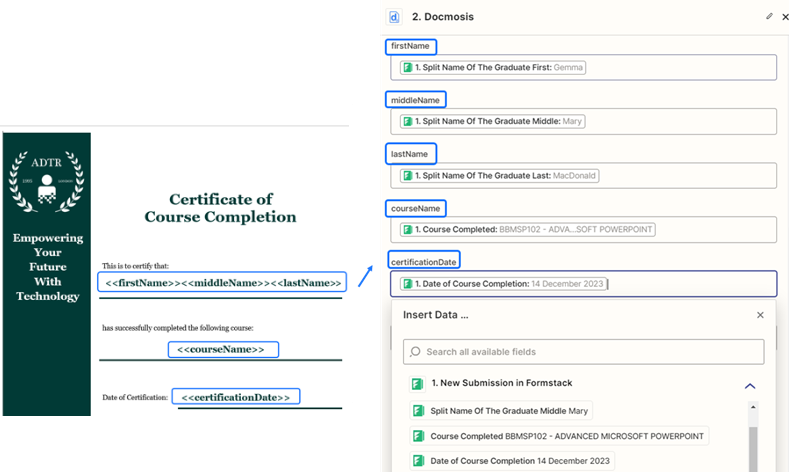
Step 11: Set up a email delivery
This is the easiest way to confirm that all settings are correct. Later on you can add more steps to your Zap to perform further actions with the document.
To setup email delivery enter the email, subject and body of email in the corresponding fields.
Note: From a Docmosis Cloud Free trial account emails can only be sent to the Docmosis account Admin(s).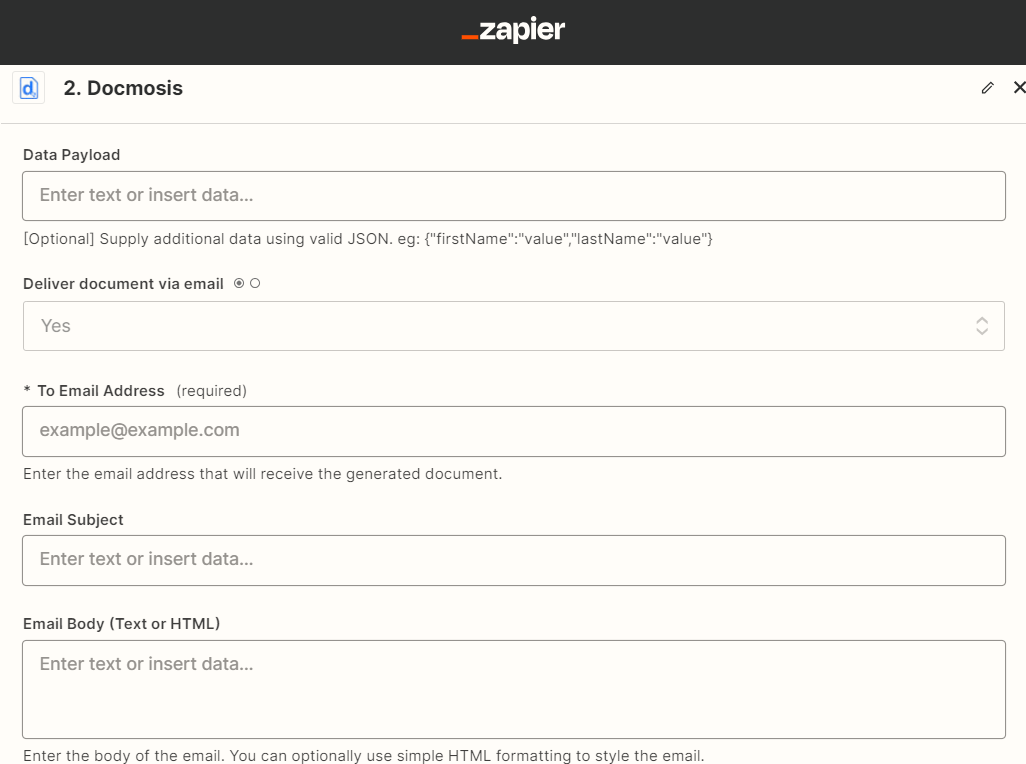
Step 12: Test the Zap
Check your email. The generated document will arrive in the email as an attachment.
That's it! Publish the Zap and every time the form is completed you will receive a generated document.



